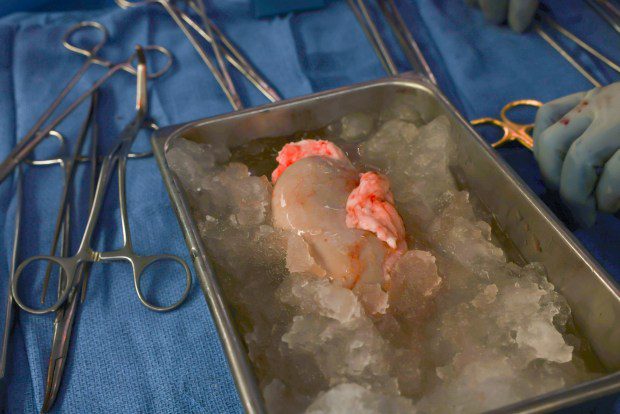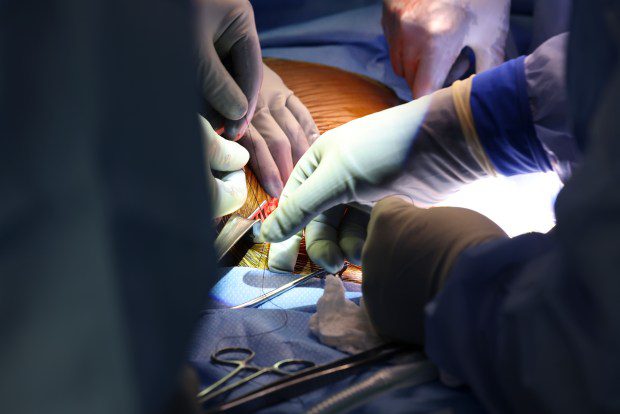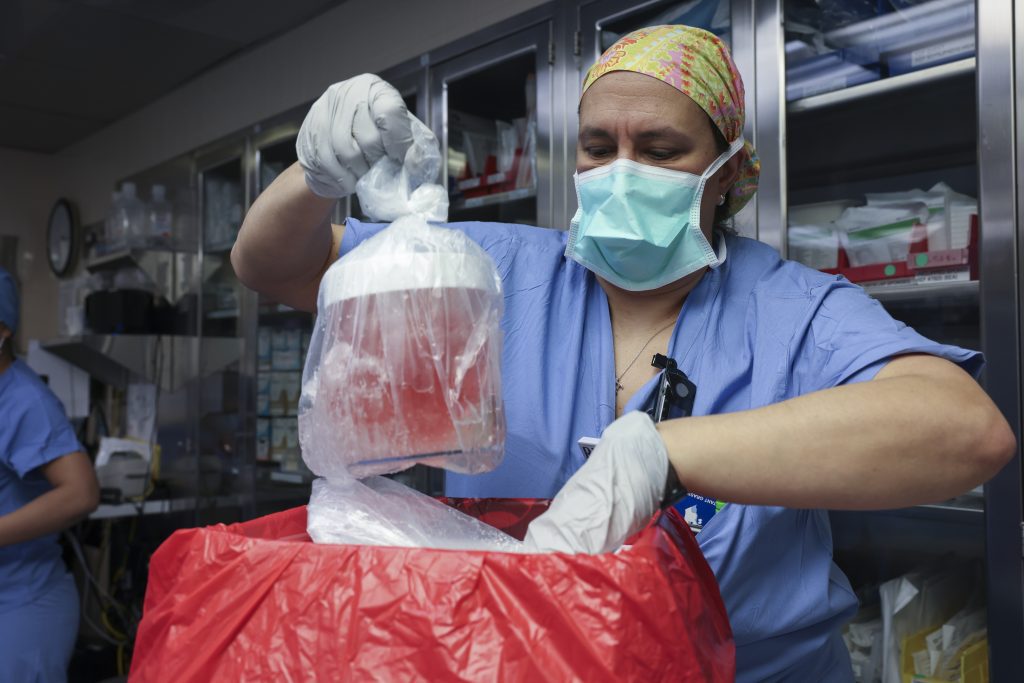Mass General has accomplished another notable feat.
The well-known Boston teaching hospital announced today that it achieved the first successful transplant of a genetically edited pig kidney into a 62-year-old man from Weymouth who has end-stage kidney disease.
Anne Klibanski, MD, President and CEO of Mass General Brigham, expressed pride in the hospital's clinicians for showcasing their dedication to providing cutting-edge treatments and alleviating the burden of disease for patients worldwide, nearly 70 years after the first successful kidney transplant.
Mass General stated that the advanced CRISPR technology played a crucial role in this procedure.
The pig kidney, which was genetically modified using CRISPR-Cas9 technology by eGenesis of Cambridge, was provided by a pig donor. The hospital explained that harmful pig genes were removed, and certain human genes were added to enhance compatibility with humans, in a press release this morning.
A press conference is currently taking place at MGH.
According to the New York Times, the male recipient of the pig kidney is a Black man, which is significant as African Americans have higher rates of fatal kidney disease.
Mike Curtis, CEO of eGenesis, expressed gratitude for the patient's brave contribution and the advancement of transplantation science in a statement to the Herald.
MGH confirmed the patient's identity as Richard “Rick” Slayman of Weymouth, who is recovering well and is expected to be discharged soon.
Dr. Joren C. Madsen, director of the MGH Transplant Center, praised Mr. Slayman for his courage and willingness to venture into uncharted medical territory, highlighting his role as the true hero of the successful surgery.
The doctor noted that Mr. Slayman has become a symbol of hope for countless individuals suffering from end-stage renal disease and has opened up new opportunities in organ transplantation, as the global medical community celebrates this momentous achievement.
The Weymouth man expressed complete trust in MGH in a statement.
After his transplanted kidney began to fail in 2023, Slayman entrusted his care team at MGH to enhance his quality of life and prolong it. Dr. Winfred Williams, MD and the Transplant Center team suggested a pig kidney transplant, carefully explaining the advantages and disadvantages of the procedure. Slayman saw it as a way to not only benefit himself, but also provide hope for the many people in need of a transplant.
MGH stated that more than 100,000 individuals in the U.S. are awaiting an organ for transplant, and 17 people die daily while on the waiting list, according to the United Network for Organ Sharing (UNOS).
The hospital added that kidneys are the most commonly needed organs for transplant, and end-stage kidney disease rates are projected to increase by 29-68 percent in the U.S. by 2030, as per findings published in the Journal of the American Society of Nephrology.
This is a developing story …











